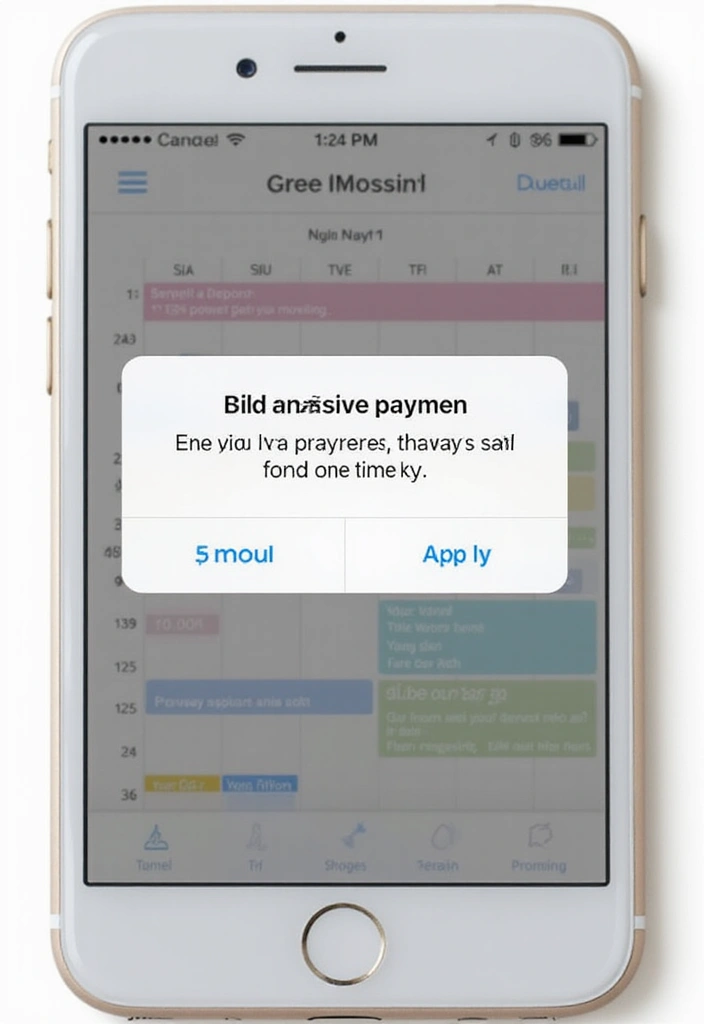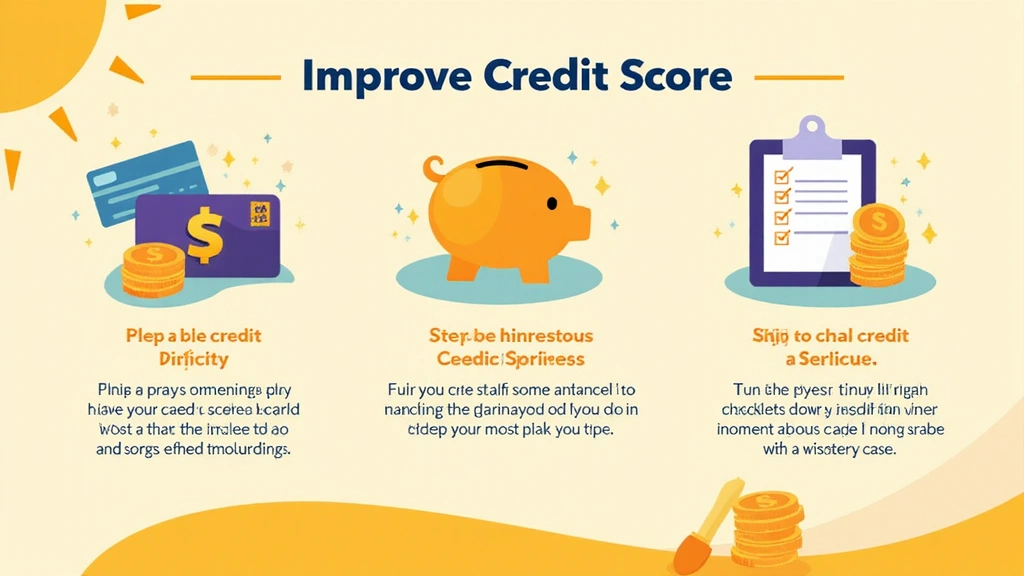In today’s fast-paced financial world, maintaining a good credit score is essential for achieving your dreams, whether it’s buying a home, getting a new car, or simply having access to better financial products.
Credit scores can feel like an enigma, but with the right strategies, you can boost yours in no time. This article reveals twelve surprising secrets that will help elevate your credit score quickly, making you more financially healthy and savvy. Prepare to be amazed by the techniques you never thought could make such a difference.
Imagine a vibrant infographic showcasing the steps to improve your credit score, featuring colorful icons representing each tip, such as a piggy bank, a credit card, and a checklist, all against a bright, inviting background.
Contents
- 1. Check Your Credit Report Regularly
- 2. Pay Your Bills on Time
- 3. Reduce Your Credit Utilization Ratio
- 4. Avoid Opening New Credit Accounts Too Quickly
- 5. Keep Old Credit Accounts Open
- 6. Diversify Your Credit Mix
- 7. Set Up Alerts for Payment Due Dates
- 8. Use Credit Responsibly
- 9. Become an Authorized User
- 10. Negotiate with Creditors
- 11. Utilize Credit Monitoring Services
- 12. Consult a Credit Counselor
1. Check Your Credit Report Regularly

One of the most straightforward yet powerful strategies to enhance your credit score is to check your credit report on a regular basis. Many individuals are often unaware of the errors that may lurk in their reports, which can significantly harm their scores. By diligently reviewing your credit report, you can spot inaccuracies or outdated information that might be detrimental to your score.
To get started, request your free credit report from the major credit bureaus at least once a year. As you examine the report, pay attention to any discrepancies such as incorrect late payments or accounts that are not yours. Disputing these errors can lead to a swift improvement in your credit score. For those looking for a reliable way to monitor their credit, consider using a credit report checking service.
Moreover, keeping an eye on your credit report enables you to track new accounts and ensures that your identity is not being misused fraudulently. To further empower your financial knowledge, you might also want to explore some financial planning books. Additionally, investing in an identity theft protection service can provide peace of mind, safeguarding you from potential fraudulent activities.
2. Pay Your Bills on Time

Timely payments are essential for maintaining a healthy credit score. Late payments can lead to significant drops in your score, making it crucial to pay your bills on or before their due dates. One effective way to ensure you never miss a payment is by utilizing an automatic bill pay service, which simplifies the process and takes the stress out of managing due dates.
Additionally, consider using budgeting apps that can track your expenses and send notifications when payments are due. This proactive approach not only helps in avoiding missed payments but also positively influences your credit score.
You can also enhance your organization with a financial planner notebook, which provides a tangible way to keep track of your bills and deadlines. Remember, the longer a payment is overdue, the more it can impact your score. Cultivating the habit of making punctual payments will not only improve your credit score but also contribute to your overall financial well-being.
3. Reduce Your Credit Utilization Ratio

Your credit utilization ratio, which measures the percentage of your available credit that you are currently using, is a crucial factor in determining your credit score. To maintain a healthy credit score, it’s recommended that you keep your utilization below 30%. When your credit utilization is high, it can raise red flags for lenders, potentially leading to a drop in your score.
To quickly enhance your credit score, consider strategies such as paying down existing balances or even enrolling in a credit score improvement program. This not only helps reduce your utilization but also showcases your ability to manage credit responsibly. Additionally, distributing your purchases across multiple credit cards rather than maxing out a single card can keep your utilization ratio low and positively influence your score.
For those looking to deepen their understanding of credit management, exploring financial literacy books can provide valuable insights and tips. Implementing these strategies offers a quick boost to your financial health and paves the way for better credit management.
4. Avoid Opening New Credit Accounts Too Quickly

While it may be tempting to apply for several new credit accounts in hopes of increasing your available credit, this strategy can backfire and negatively impact your credit score. Each time you submit a credit application, a hard inquiry appears on your credit report, which can lower your score. Lenders often interpret multiple inquiries as a sign of potential financial trouble, raising red flags about your creditworthiness.
Instead, adopt a more strategic approach to new credit applications. Space them out and only apply when absolutely necessary. For instance, if you’re considering debt consolidation, it’s wise to explore reliable options such as a debt consolidation service that fits your needs. Additionally, if you’re looking for credit cards that offer rewards, check out the best credit cards for rewards that can enhance your financial journey.
Lastly, improving your financial decision-making skills can be invaluable; consider picking up a few insightful financial decision-making books to guide you through the process. This thoughtful approach not only safeguards your credit score but also contributes to your overall financial well-being.
5. Keep Old Credit Accounts Open

The duration of your credit history plays a crucial role in determining your credit score, which is why it’s essential to keep older accounts open, even if they aren’t in regular use. Closing these accounts can lead to a shorter credit history, potentially harming your score.
Instead of closing them, consider making occasional small purchases on your old accounts and promptly paying them off. This practice not only keeps your accounts active but also contributes to a longer credit history. Additionally, it showcases your adeptness in managing credit, something that lenders appreciate.
To help you stay organized, you might want to invest in wallet organizers to neatly display your variety of credit cards, including those older ones that are key to your credit history. Moreover, utilizing credit history tracking tools can provide you with valuable insights into your credit standing. Lastly, consider adopting financial management software to help you keep track of your overall financial health and make informed credit decisions.
6. Diversify Your Credit Mix

Having a diverse mix of credit types—such as credit cards, installment loans, and retail accounts—can significantly enhance your credit score. Lenders appreciate borrowers who can manage various forms of credit responsibly. If your portfolio consists solely of credit cards, you might want to consider adding an installment loan, like a car loan or a personal loan. You can explore options through a personal loan comparison site to find the best fit for your needs.
However, it’s crucial to only take on new debt if it aligns with your financial situation. While diversifying your credit can lead to an improved score, be cautious not to overextend yourself financially. A balanced approach not only showcases your ability to manage different credit types but can also pave the way for better credit opportunities in the future.
To assist you in managing your credit mix effectively, consider utilizing financial planning tools that can help you track your debts and payments. Additionally, a credit mix management guide can provide valuable insights on how to achieve and maintain a healthy credit portfolio. Visualize a balanced scale representing various credit types—credit cards, personal loans, and mortgages—symbolizing the importance of a diverse credit mix.
7. Set Up Alerts for Payment Due Dates

Setting up alerts for payment due dates can be a transformative strategy for maintaining your credit health. Many banks and financial institutions provide notification services that remind you of upcoming payments, which helps you avoid late fees and negative marks on your credit report.
By leveraging these alerts, you can better manage your finances and ensure you make your payments on time. This straightforward yet powerful technique can significantly boost your credit score over time. To enhance your financial management, consider using budgeting apps with alert features that not only remind you of due dates but also help you track your spending habits.
Additionally, you might find reminder tools useful for keeping your financial commitments organized. For a more comprehensive approach, explore financial health tracking apps that can provide reminders and insights into your spending patterns, further enhancing your overall financial well-being.
Imagine a smartphone screen lighting up with a notification for an upcoming bill payment, set against a colorful calendar backdrop, highlighting your proactive approach to managing your finances effectively.
8. Use Credit Responsibly

Using your credit cards responsibly is essential for enhancing your credit score. This involves not only making timely payments but also being conscious of your credit usage. By staying within your budget and resisting the urge to overspend, you can maintain a healthy credit utilization ratio, which is crucial for your financial stability.
To further support your journey towards responsible credit use, consider exploring financial literacy resources that can provide valuable insights. Additionally, utilizing budgeting calculators can help you keep track of your spending and make informed financial decisions.
Whenever possible, aim to pay more than the minimum amount due on your credit cards. This not only showcases your dedication to reducing debt but also contributes positively to your credit score. To efficiently manage your credit cards, consider using credit card management tools that can simplify the process and enhance your overall financial health. Educating yourself on responsible credit practices is a vital step toward achieving a stronger credit score and unlocking better financial opportunities in the long run.
9. Become an Authorized User

One of the most surprising methods to quickly enhance your credit score is by becoming an authorized user on someone else’s credit card. This strategy enables you to benefit from the primary account holder’s positive credit history without incurring any debt yourself. If the primary user maintains a good payment history and low credit utilization, it can significantly improve your credit score.
It’s vital to choose a responsible primary user, such as a family member or close friend with a solid credit history. This can lead to a noteworthy increase in your credit score, laying down a strong foundation for your financial future. To further strengthen your financial knowledge, consider investing in credit card management systems, which can help you understand how to manage credit effectively.
Additionally, participating in financial planning workshops can provide you with valuable insights into maintaining your credit score. For a family-centered approach to budgeting, check out family budgeting guides that can help everyone in your household understand their financial responsibilities better. Embrace these strategies to celebrate your journey toward improved credit health!
10. Negotiate with Creditors

If you find yourself grappling with credit card debt or encountering challenges in making your payments, it’s essential to take the initiative and negotiate with your creditors. Many creditors are open to collaborating with you to establish a manageable payment plan or even settle your debt for a lesser amount. This proactive strategy can not only help you handle your current debt more effectively but also lead to improvements in your credit score over time.
When entering negotiations, it’s crucial to be transparent about your financial circumstances and ready to explore your options. For additional support, consider utilizing debt negotiation services that can guide you through this process. Be sure to document all agreements made and verify that any modifications are accurately reported on your credit report.
This approach not only aids in managing your existing debt but also builds trust between you and your creditors, ultimately enhancing your overall financial health. Additionally, engaging in financial coaching programs can provide valuable insights into effective debt management strategies. Finally, utilizing budgeting tools can further assist you in maintaining control over your finances.
11. Utilize Credit Monitoring Services

Credit monitoring services are essential tools that provide you with critical insights into your credit health, allowing you to stay informed about any changes to your credit report. These services can send you alerts for new accounts opened in your name, significant shifts in your credit score, or potential signs of fraud. By actively monitoring your credit, you can quickly respond to any discrepancies that arise.
Many credit monitoring services also offer free trials, enabling you to evaluate their effectiveness before making a commitment. Regularly utilizing these services can help you maintain a strong credit score while enhancing your understanding of how your financial decisions impact your credit health over time. This knowledge empowers you to make more informed financial choices.
In addition to credit monitoring, consider investing in identity theft protection tools to safeguard your personal information, as well as financial education resources that can further enhance your financial literacy. Visualize a person receiving timely alerts on their smartphone regarding their credit score changes, surrounded by analytics charts and graphs, highlighting the importance of being proactive about your credit health.
12. Consult a Credit Counselor

If you’re feeling overwhelmed by managing your credit or are uncertain about the best ways to improve your score, seeking help from a credit counselor can make all the difference. These professionals provide personalized advice tailored to your unique financial situation, helping you create a budget and offering effective debt management strategies.
Many non-profit organizations offer credit counseling services that are either free or low-cost, ensuring you can access quality guidance without incurring hefty fees. Additionally, investing in financial wellness books can provide you with further insights and strategies to enhance your financial health.
Furthermore, utilizing budgeting software can simplify your financial planning, allowing you to track your spending and savings effectively. Taking these steps can empower you to take control of your financial future and significantly boost your credit score. Professional assistance, combined with the right tools, can be invaluable in navigating the complexities of credit management.
Conclusion

Improving your credit score is not an overnight process, but with the right strategies and dedication, you can see significant improvements in a short time. From checking your credit report to utilizing credit monitoring services, every step you take contributes to better financial health.
Implement these twelve secrets, and you’ll be well on your way to achieving a thriving credit score. Remember, knowledge is power, so stay engaged with your financial health and continue seeking ways to improve.
Imagine a bright, uplifting visual of a person celebrating their financial achievements, surrounded by symbols of success like a credit score report, a new home, and joyful expressions, representing the journey of financial empowerment.
Note: We aim to provide accurate product links, but some may occasionally expire or become unavailable. If this happens, please search directly on Amazon for the product or a suitable alternative.
This post contains Amazon affiliate links, meaning I may earn a small commission if you purchase through my links, at no extra cost to you.



2 thoughts on “12 Secrets to Boost Your Credit Score Fast (You’ll Be Shocked by #9!)”